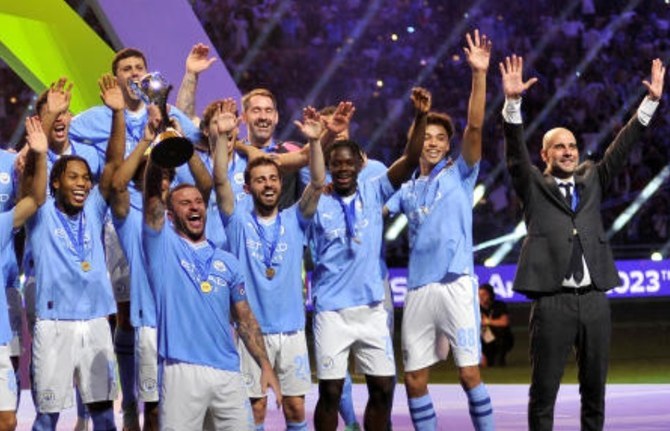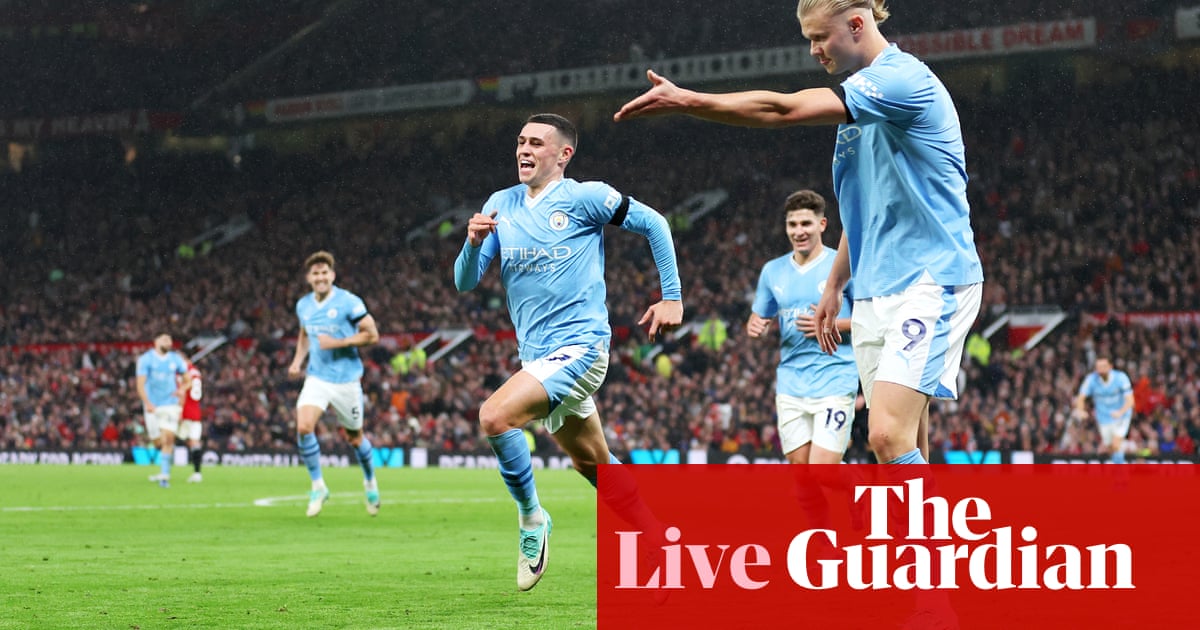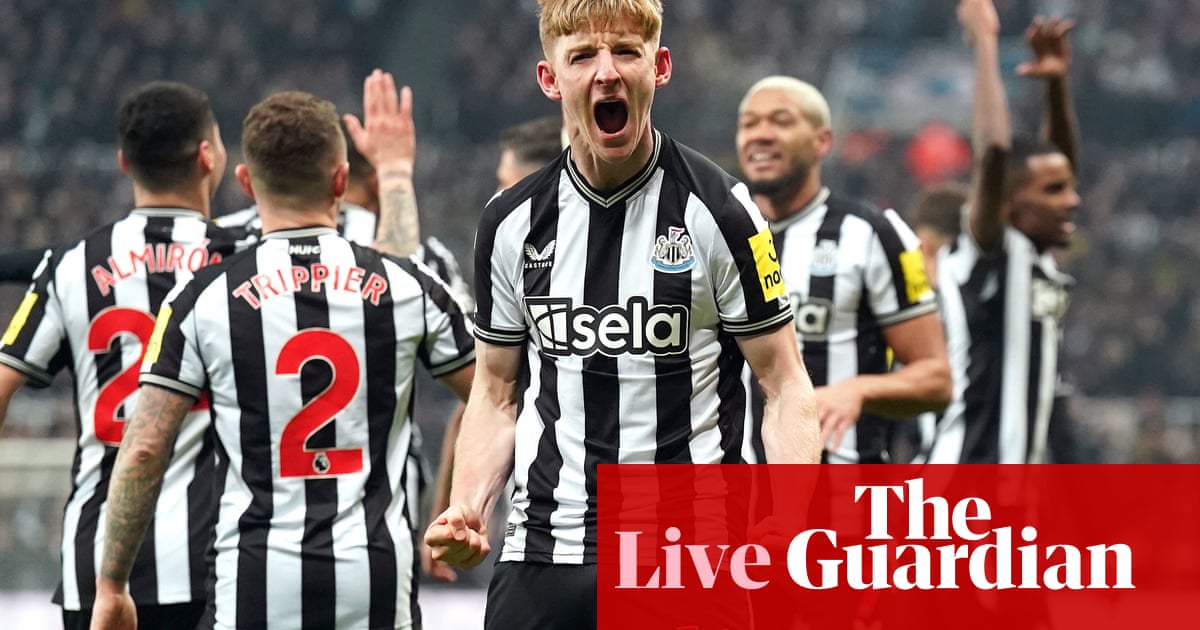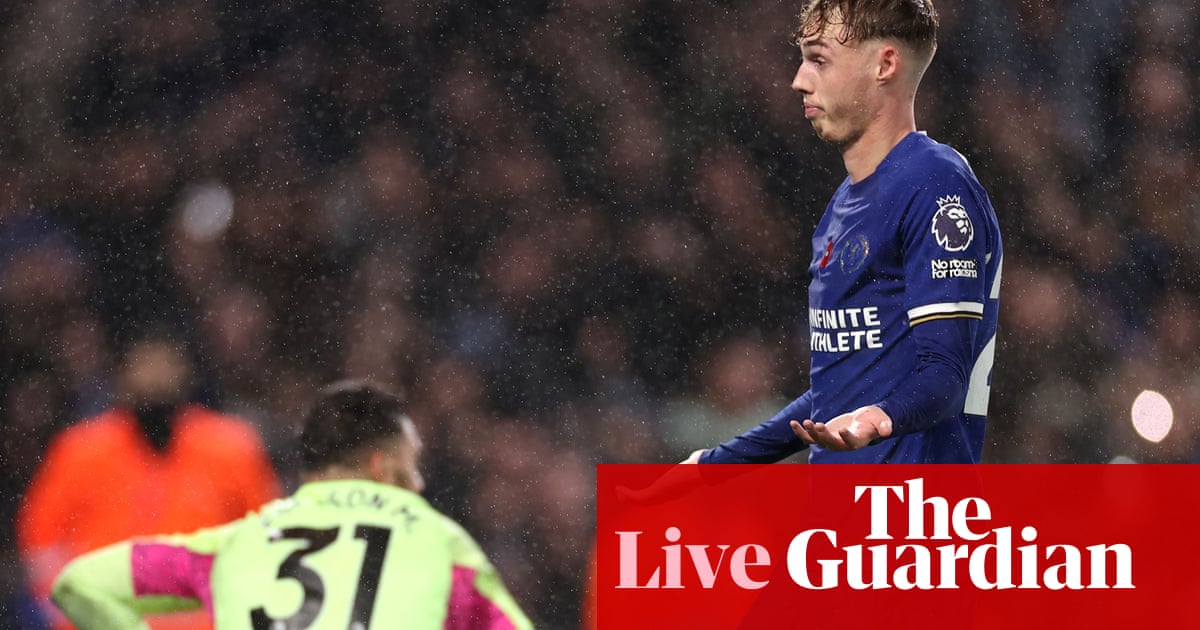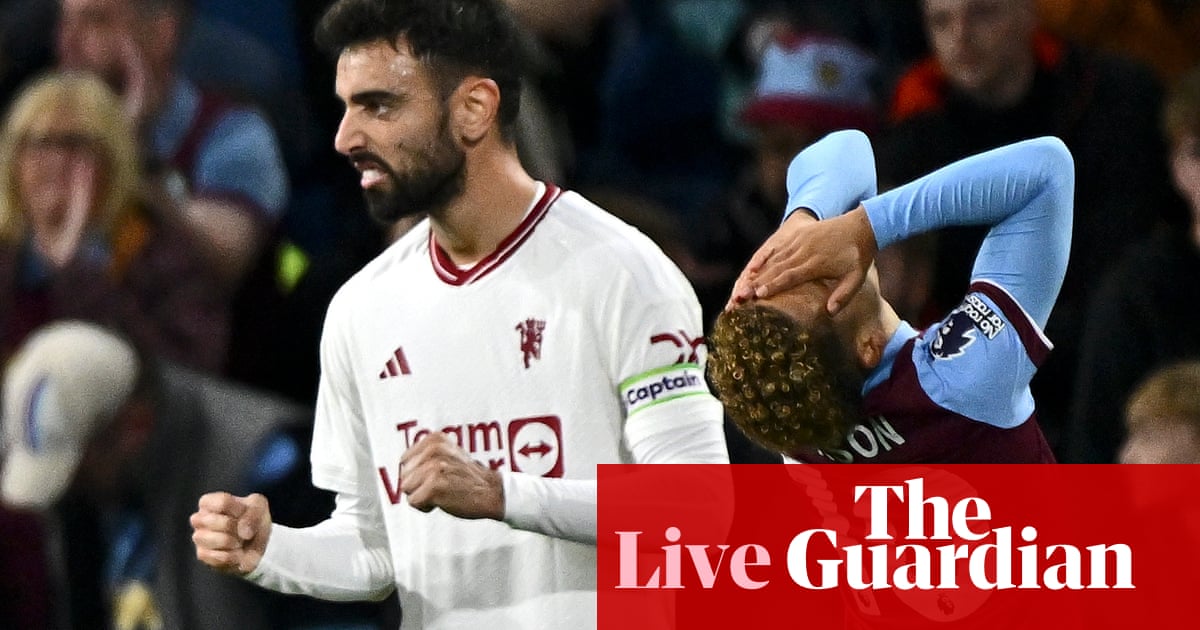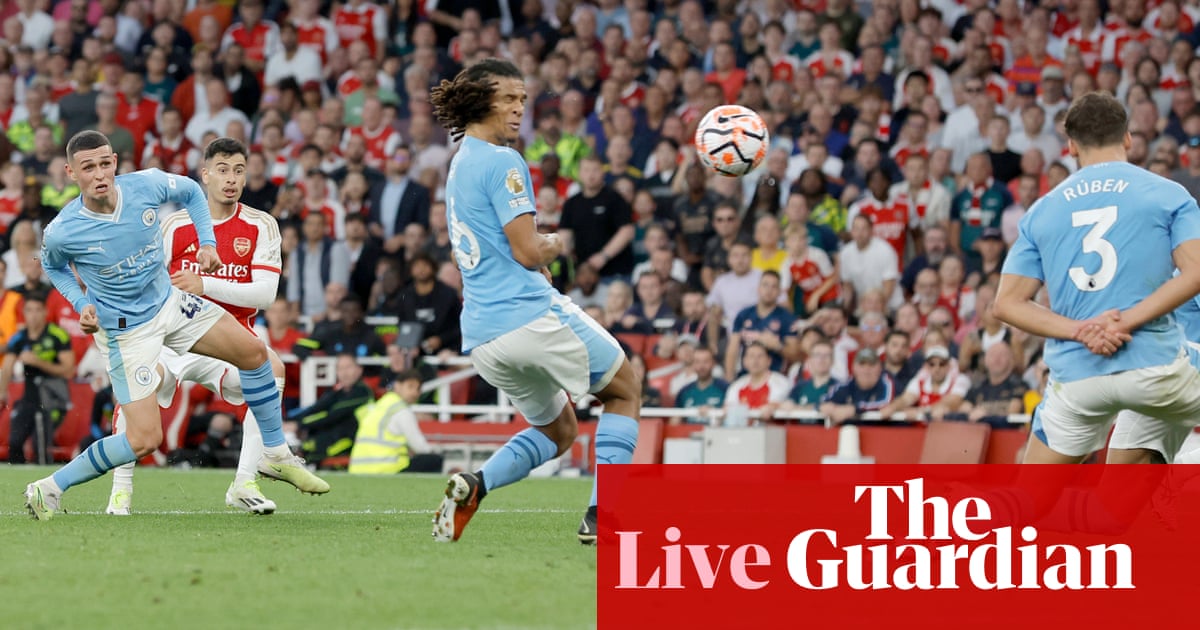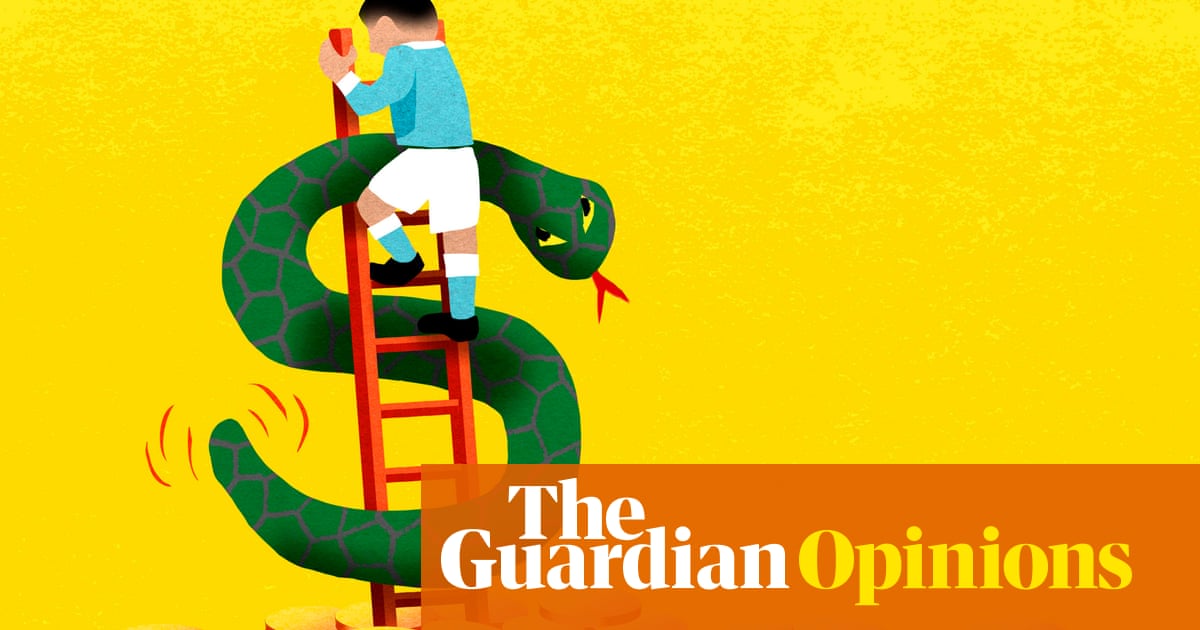
Tick-tock. Humans love an extinction event. Entire religious mythologies, entire episodes of Star Trek tend to move this way, toward hubris and nemesis, the notion of end times.
The Mayans had the end of the world pegged at 21 December 2012, which might, in retrospect, have been a decent offer we should have accepted. The entire cultural history of the 1980s is basically Midge Ure walking through the Vienna mist in a leather overcoat surrounded by decaying grandeur and laughing Nazi-yuppies, waiting for megadeath to fall from the skies.
Except, of course, stuff keeps on happening. The world continues to end, but people still keep showing up asking where the party is. The draw for the Euros is about to take place. King Charles is worried about methane. Midge Ure lives in Somerset these days. We remain, just about, pre-Skynet.
It is worth bearing this in mind when considering the ominous news that Manchester City and the Premier League have agreed a date for processing those epic-scale financial charges, a moment that feels like an existential threat not only to City but to the future of the league itself.
According to reports first published in the Daily Mail the tribunal begins next autumn, with a verdict likely in the spring of 2025. Even without appeals, that will be two years on from the charges, a wait that has already generated some anger.
There is good reason for the delay. This isn’t Everton, who admitted their guilt on a single charge. City deny all 115 charges and have gone full Logan Roy divorce-playbook, hiring every available human lawyer from Lord Helicopter-Gunship KC to the guy in The Wire who knows where Marlo Stanfield is.
More to the point, the jeopardy here is vast for both accused and accuser. The charges scroll back over 14 seasons. City are, on the back of that period, the most profitable entity in world football, the Premier League’s poster boys. In an industry where the product is basically broadcast rights and lucrative stability, it is in many ways surprising these charges have even got this far.
But we now have a ticking clock. There is, as the man on the radio put it, an Asterix (sic) hanging over City and also over the credibility of the league itself. With that in mind there are probably two things worth saying at this point.
First, there is a temptation to see a potential extinction event for the Premier League. The defining tension in world football right now is around who gets to own the product. The super league was shambolically executed. It continues to churn, absurdly, in the background, tied down now by charter agreements and government warnings. But it isn’t exactly dead. Some aspect of this idea will form the future.
How long can any empire last? City’s fans were among the most vocal in rejecting the idea of a breakaway, railing against greed, money and the overclass in a way that is both heartening and also a good working example of dramatic irony (Google: inherited monarchy).
Chuck in fines and points deductions, plus five more years of dissolution of the collective will. How strong do we feel? How united is a Premier League where the generational champions are at war with their own governing body? Maybe this is just where the story was always heading, a league that kept opening its door to every passing caller, and that ends up hostage to its own greed. Let the right one in.
Then again, what is the most likely outcome? I remain deeply sceptical that football, which exists within an absurdly self-important bubble, will get to decide free from any outside influence how this thing plays out. This isn’t Truther-style don’t-trust-the-government stuff. It’s the opposite. Do trust the government to keep behaving as governments always have.
Manchester City is not a football club in this context. It is an arm of a highly influential nation state, with whom the UK did £25bn of trade last year. Two years ago the UAE, led by Abu Dhabi’s state fund Mubadala, agreed a multibillion-pound investment in British infrastructure. The chief executive of Mubadala, Khaldoon al-Mubarak, is also chairman of Manchester City.
The same year the UK prime minister met Sheikh Mohamed bin Zayed al-Nahyan, deputy supreme commander of the UAE armed forces to agree a key defence pact. Sheikh Mohamed’s brother is Sheikh Mansour, the de facto owner of Manchester City. Er. Can we have a word old bean, about this soccer stuff?
This is simply the realpolitik here. We know the Foreign Office has discussed the Premier League charges with its counterparts in Abu Dhabi. We know ministers are prepared to stand in front of the department for culture, media and sport and maintain, absurdly, that Newcastle are owned “by a fund” not a state actor because this is a necessary line and these are vital relationships as the UK flounders in a world wracked with war and carbon dependency.
What would be the most normal outcome? That a rag-bag of football administrators gets free rein to decide what happens here? It is even quite funny that football should be surprised or aggrieved at any of this. Invite a government to own one of your clubs and you’re asking an entity concerned solely with its own strategic interests to abide by some rules written by employees of an overseas sports league.
There is another point worth making, before this starts to feel too much like a doomsday moment. Football is, in the end, just content. And for the neutral these charges are perhaps the most objectively interesting thing about the current City era, a battle that will now define this era of success and indeed the future of elite club football.
This to not to say the team haven’t been beautiful, or the football beguiling. Pep Guardiola has transformed English football tactically and texturally. The players are captivating because great players are captivating. To witness Bernardo Silva playing football is like watching a lovable field mouse win 25 simultaneous games of chess, while also defeating an army of orcs using only a tickle stick.
But for the neutral this is also a cold project. Great teams have tended to express something, from that Catalan-Dutch sense of modernism, to the simple romance of a few individuals flung together by serendipity and hard work. What does this Manchester City express, other than the self-evident maths that the richest club in the richest league with the greatest manager and the greatest bolt-on backroom staff, all put together without jeopardy or personal interest or financial risk, will inevitably succeed. The final form expresses a kind of sporting perfection, free of edges, a machine designed for winning.
Now, though, we have this. We have defiance, we have a struggle, we have the absurd but compelling spectacle of the world’s richest club, owned by a sovereign wealth fund, presenting itself as an underdog kicking against the pricks.
Booing the overclass, raising a fist to the cartel, while remaining the richest and most powerful single player in the field: this is a wonderful liberation. At the very least it fills the void, the basic pointlessness of winning to order at the direction of a state. Instead we have the Damned City, and at a stroke this becomes a story you can’t take your eyes off.
There is a year and a half of this tension to run before a decade of elite success must be recast by the decision of a tribunal. The story looks purposeful, sharpened to a point. Just don’t, perhaps, expect a bravura ending.





